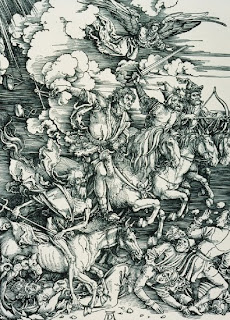The ultimate buzzkill
 I think I will skip over the entire Spitzer scandal (since you can get your fill of that just about anywhere today) except to say that no matter what some people want to tell you, irony is never out of fashion. And I will also say I have an inverse proportion of not-sadness for him offset with sadness for this 22 year old girl who will now always be known as a high-priced call girl. Drudge today has a link to her MySpace page, which presents her as a singer, and thesmokinggun.com has a passel of photos, and it all adds up to a story that probably plays out thousands of times a year all over the world - pretty young thing wants to be a star, tries to make it in the big city, doesn't have the talent or doesn't want to pay the dues, and ends up selling her body. It's really all too sad and tawdry.
I think I will skip over the entire Spitzer scandal (since you can get your fill of that just about anywhere today) except to say that no matter what some people want to tell you, irony is never out of fashion. And I will also say I have an inverse proportion of not-sadness for him offset with sadness for this 22 year old girl who will now always be known as a high-priced call girl. Drudge today has a link to her MySpace page, which presents her as a singer, and thesmokinggun.com has a passel of photos, and it all adds up to a story that probably plays out thousands of times a year all over the world - pretty young thing wants to be a star, tries to make it in the big city, doesn't have the talent or doesn't want to pay the dues, and ends up selling her body. It's really all too sad and tawdry.So instead, let's talk about the end of the world as we know it.
I have been immersed in the end of the world in the last week. During a spectacularly enjoyable 3-day vacation, I read The Road, Cormac McCarthy's Pulitzer-winning novel - watched I am Legend in the hotel room - and then caught up on some DVRed episodes of Jericho, my "nighttime soap" style guilty pleasure. Kind of an odd pileup of depressing fare for a week when everything's blooming, the baseball season's starting, and I have seventy-eleven reasons to be cheerful.
As post-apocalyptic fiction goes, The Road is two things most efforts are not - tremendously well-written and touching, and tremendously bleak. Most of these stories give you something to rally around, with a core sentiment that there's no plague, asteroid, nuclear bomb or space goblin that can wipe out good ol' humankind. We will always rise above it, will always make a comeback. The Road is different. The redemption is of a different kind. I'd read it if I were you (but maybe take an extra Xanax.)
Why do we dwell on these kinds of stories anyway? It's not a new thing - Mary Shelley is credited with writing the first modern story in this genre in 1826, and if you count the Book of Revelation, I guess we've been entertaining ourselves with this dismal prospect for a few thousand years. Lots of modern versions show our love-hate relationship with technology - the robots, or the computers, or the weapons, or the microbes, will be our downfall - but it hasn't always been that way. Maybe there' s something larger to it, like basic species self-loathing? Like we're not suffering enough? Like we don't deserve all we've got and ought to be wiped out?
I think I have depressed myself now. Does anyone have a puppy I can play with for awhile...?

Comments